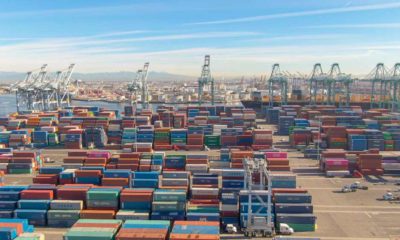bank
The Disastrous Impacts Of the Global Oil Surplus
While we all have been relishing low U.S. gas prices, oil companies have been chewing their nails and carefully watching their profit margins decrease.
Reuter’s recently published a groundbreaking report on a study conducted by Deloitte, a major consulting firm, which concluded that nearly a third of the world’s publicly traded oil manufacturers are at risk of bankruptcy within the next year.
The oil industry has always been a centerpiece of the American economy, but as the world market is continously saturates with surplus oil, domestic producers have been suffering from the ramifications of extremely low oil prices.
The Impact of Huge Oil Surpluses
When most economists talk about the long-term future of oil prices, they speak of the risk of running out of oil, a limited, non-renewable resource that has been steadily dwindling since the industrial revolution. Paradoxically, the concern of most economists at the moment is that there is currently too much oil available in the market.
Producers in the United States and other highly developed countries have felt the worst fallout of this. Global demand has not risen to meet this supply, and as a result, the market is stagnating.
The surplus is primarily caused by the refusal of other major oil-producing countries in the Middle East and Russia to slow their production in order to stabilize global prices. These countries are able to cope with the extremely low prices because their labor rates are also extremely low, so no matter how much oil’s value falls, these countries have a constant flow of cheap labor, workers who are willing to work at extremely low rates.
Crude oil soared as Saudi's new oil boss took office, now settling pic.twitter.com/79L3uiFKDy
— The Capitalist (@Capitalist_Site) May 9, 2016
Why does this surplus problem keep getting worse?
The globalization of the oil industry means that the impacts of decisions such as those made by Russia and the Middle East do not remain in their respective regions. The effects ripple throughout the entire globe.
There is an intense feedback loop that reinforces countries to continue producing oil, thus contributing to the already huge surplus and exacerbating the problem more and more. Because the oil economy is so globalized, if one country, for example, the United States, chose to stop producing as much oil in an attempt to stabilize prices and keep the industry thriving, their oil economy would be at risk of total collapse.
This is because if only one country reduces production, raising prices, importers will simply move to other countries as oil sources who have not decreased production.
In order to solve the problem, all oil-producing countries would have to agree to slow production at the same time, so that global prices would rise and, with no cheaper alternatives, importers would be forced to buy at higher prices.
However, even if such an agreement came about, there would be a very strong incentive for countries to cheat and continue over-producing. If one country breaks the deal and continues over-producing at a low price, then their oil economy will flourish as importers fight to buy their oil at the lowest prices.
The other countries in the deal would suffer and likely begin over-producing again, leading to a vicious cycle of overproduction and economic depression.
[buffet_recommended]
Besides surpluses, what else has contributed to the widespread bankruptcy risk?
Aside from global oil surpluses, many oil companies have significantly restructured their business models in the last few years, leading to immense amounts of debt.
As repayment of debt was negotiated, debtors and lenders assumed that costs would remain somewhat stable. However, now that oil prices have plummeted, debtors are having an extremely difficult time repaying this debt at current interest rates.
Opportunities for restructuring the debt at this time seem unlikely because lenders want to cut their losses in the case of an oil industry collapse, and thus, have a strong incentive to continue gathering as much money as possible for the companies in debt to them.
Are there any solutions in sight?
At this juncture, it looks like most of these companies will ultimately resort to filing bankruptcy, placing a huge burden on taxpayers, federal reserves, and lenders. Some economists have discussed the possibility of the consolidation of different companies as a potential solution.
However, most companies are not open to consolidating or considering new acquisitions in a time of extreme financial hardship, in an attempt to avoid the risk of potential failure after spending even more on the consolidation process.
Many oil companies, including Hercules, Sabine, and Warren have already made headlines by defaulting on their debt.
Some of the companies projected to be closest to this breaking point in the next few weeks include:
- Ithaca Energy Inc.
- Energy XXI Ltd.
- Goodrich Petroleum Corporation
- Comstock Resources Inc.
The only solution which has the potential to slow or halt the oil economy’s depression is the widespread cooperation among the world’s oil-producing nations to form a successful pact to reduce their production and keep prices stable. Without this kind of deal, companies will continue on their current path of trying to out-compete each other by lowering prices even more, until most major companies default.















